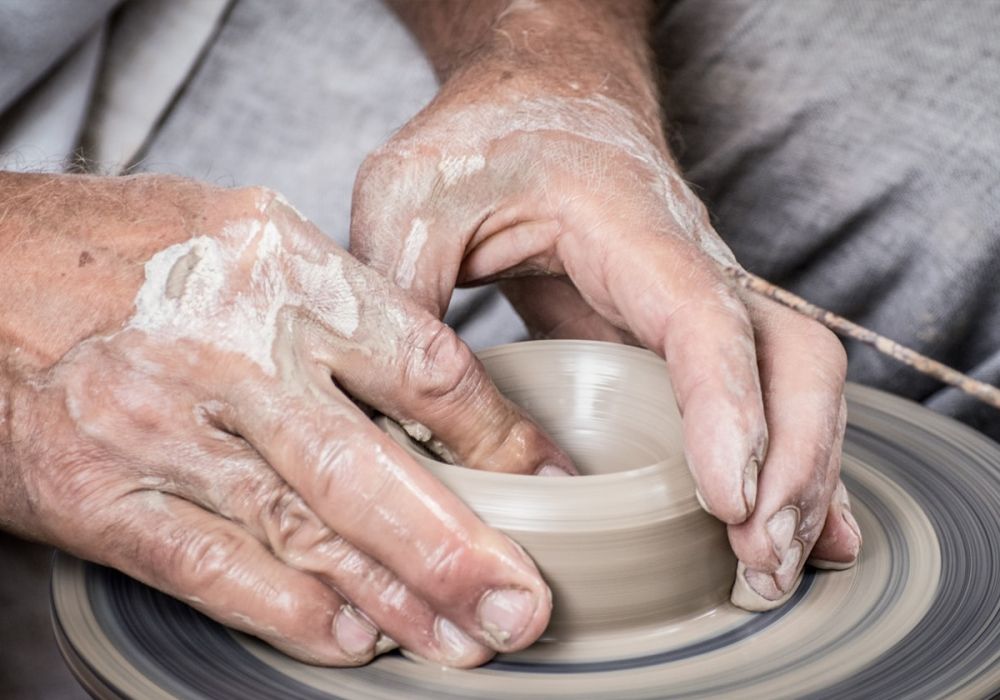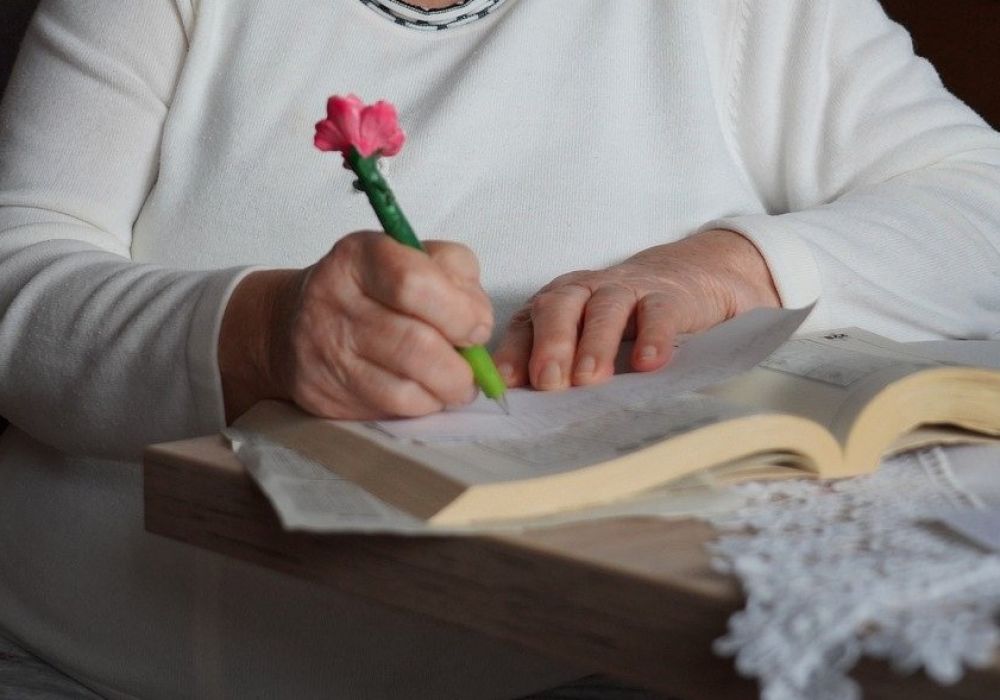Igniting Creativity in Your Later Years: A Guide for Seniors

Creativity doesn't retire, and neither should you. As we age, our canvas of life becomes rich with experiences, making it the perfect time to dive into creative pursuits. Whether it’s picking up a paintbrush for the first time or revisiting an old guitar gathering dust in the attic, creativity in your senior years can be a source of joy, healing, and a vibrant connection to both the past and present. Let's unwrap the boundless benefits and joys of embracing creativity during these rewarding years.
Rediscovering Past Passions
Think back to a time when life wasn’t dictated by deadlines or responsibilities. Maybe you used to sketch whimsical scenes, write short stories, or strum a guitar. Often, the passions of our youth are set aside, but they don't disappear. Now is the time to rekindle these old flames.
Consider the story of Emily, 78, who hadn’t touched a piano since her college days. When her grandchildren showed interest in music, she dusted off her piano and discovered not only her old skill but also a deep sense of fulfillment. It's about reconnecting with a part of yourself that's been waiting in the wings.
And it's not just about skill; it's about expression. Sharing stories, whether orally, written, or through art, keeps our history alive. It connects generations and allows for a creative legacy that can be both cathartic and empowering. So, dig up those old notebooks, tune that old instrument, and let the nostalgia fuel your creative spark.
Journaling: A Journey of Self-Expression
Journaling isn’t just about documenting daily events; it’s a gateway to self-exploration and memory preservation. It’s a therapeutic tool that can bring clarity, peace, and even unexpected bursts of creativity. The act of writing can untangle thoughts, celebrate accomplishments, and provide a medium to reminisce.

For starters, there's no right or wrong way to journal. It could be a daily summary, a collection of poetry, or even a graphic novel of your life. The key is consistency – even a few lines each day can become a tapestry of your journey. If you're unsure where to begin, start with prompts like, “The most surprising thing I learned this year,” or “A tradition I cherish.” Let your pen (or keyboard) guide you through the corridors of your memories and aspirations.
Here are some prompt ideas that may help you get started with Journaling:
- "A Moment in History": Write about a historical event you witnessed or experienced firsthand. How did it shape your perspective on life?
- "The Road Less Traveled": Reflect on a decision that significantly altered your life’s path. What did you learn from that choice?
- "Unsung Heroes": Who in your life has been an unsung hero, and why? Describe their impact on you.
- "Lost and Found": Share about something or someone you lost and then found again – this could be a tangible item, a lost friend, or even a part of yourself.
- "Bucket List Adventures": Draft a list of things you still want to do, see, or achieve. Explain why these experiences are important to you.
- "Letters Never Sent": Write a letter to a friend, family member, or even your younger self, expressing thoughts or feelings you've never shared.
- "The Beauty Around Me": Describe a scene from nature or your surroundings that recently captured your attention. What did you notice, and how did it make you feel?
- "My Favorite Things": List your favorite things (books, movies, songs, etc.) at different life stages and reflect on how your tastes have evolved over time.
- "Life's Little Lessons": Think about a small, seemingly insignificant moment that taught you a valuable lesson.
Remember, the journal is your confidential companion. In its pages, you are free to express joys, fears, and dreams without judgment. For many seniors, this becomes not just a hobby, but a close friend who listens unconditionally.
The Artistic Touch: Drawing and Painting
Art offers a world where colors and shapes tell stories, and for seniors, it’s a splendid way to express emotions and experiences. Drawing and painting can be incredibly therapeutic, aiding in fine motor skills and providing a soothing outlet for self-expression. If you’re new to art, start with simple sketches using pencils or charcoal. For those inclined towards painting, watercolors or acrylics are great for beginners. Here are some ideas to get started:
- Nature Sketches: Use your backyard or a local park as inspiration.
- Still Life: Arrange a few objects on a table and try to capture their shapes and shades.
- Abstract Art: Let your mood guide your brush; there are no rules in abstract art.
Remember, the goal isn’t perfection but expression. Allow your art to be an exploration of your inner world.
The Joy of Music
Music has a timeless quality that resonates with people of all ages. Learning to play an instrument or sing can be incredibly rewarding, offering cognitive benefits and a great sense of accomplishment. It’s never too late to start:
- Learning an Instrument: Many community centers offer music classes for beginners. Simple instruments like the ukulele or keyboard can be wonderful starting points.
- Singing: Join a local choir or singing group. Singing is not only fun but also a great way to meet people and boost your mood.
Music can rekindle old memories and create new ones. It’s about the joy of creating and sharing melodies, regardless of skill level.
Crafting and Handiwork
Crafting activities like knitting, sewing, or woodworking are excellent for keeping the mind and hands active. They offer a sense of accomplishment and the pleasure of creating something tangible. Here are some crafting ideas:
- Knitting or Crocheting: Start with simple projects like scarves or hats.
- Woodworking: Build birdhouses or simple furniture. Local community colleges or workshops often offer beginner classes.
- Scrapbooking: Preserve memories and photos in a creative way.
Crafting can be a solitary or social activity, and the end products can be wonderful gifts or keepsakes.
Digital Creativity for Modern Seniors
Technology offers a new realm of creativity. Digital art, photography, and blogging are accessible ways to express yourself and connect with others. You can start a blog to share your stories, learn digital photography, or even try your hand at digital painting or graphic design. Many resources are available online to guide you through these digital pursuits.
Connecting Through Creativity
Creative activities often lead to social opportunities. Participating in classes or groups not only nurtures your creative skills but also connects you with like-minded individuals. Whether it's an art class, a writing group, or a community theater, these interactions enrich the creative experience and foster a sense of community.
Overcoming Challenges and Staying Motivated
It's normal to face challenges, such as physical limitations or doubts about your creative abilities. The key is to adapt and find what works for you. If mobility is an issue, focus on activities that can be done comfortably from home. If you're feeling uninspired, join a class or online forum to spark new ideas. Remember, the journey of creativity is personal and fluid. Celebrate small victories and enjoy the process of learning and growing.
Conclusion
As we navigate the later chapters of life, embracing creativity offers a unique and fulfilling path. Engaging in artistic pursuits—be it through painting, writing, music, or any other form of creative expression—brings a sense of accomplishment and joy that is especially meaningful in our senior years. These activities do more than just fill time; they enrich our lives, providing mental stimulation, emotional release, and a connection to both our past and present selves.
Moreover, creativity in later years often leads to new social connections and a strengthened sense of community. Whether joining a local art class, participating in a choir, or sharing stories and crafts with family and friends, these creative endeavors build bridges between people, fostering understanding and companionship. So, as you embark on this creative journey, remember that each stroke, note, or word you create is a testament to your life's experiences. It's an opportunity to explore, express, and connect—adding more vibrancy and depth to your senior years.